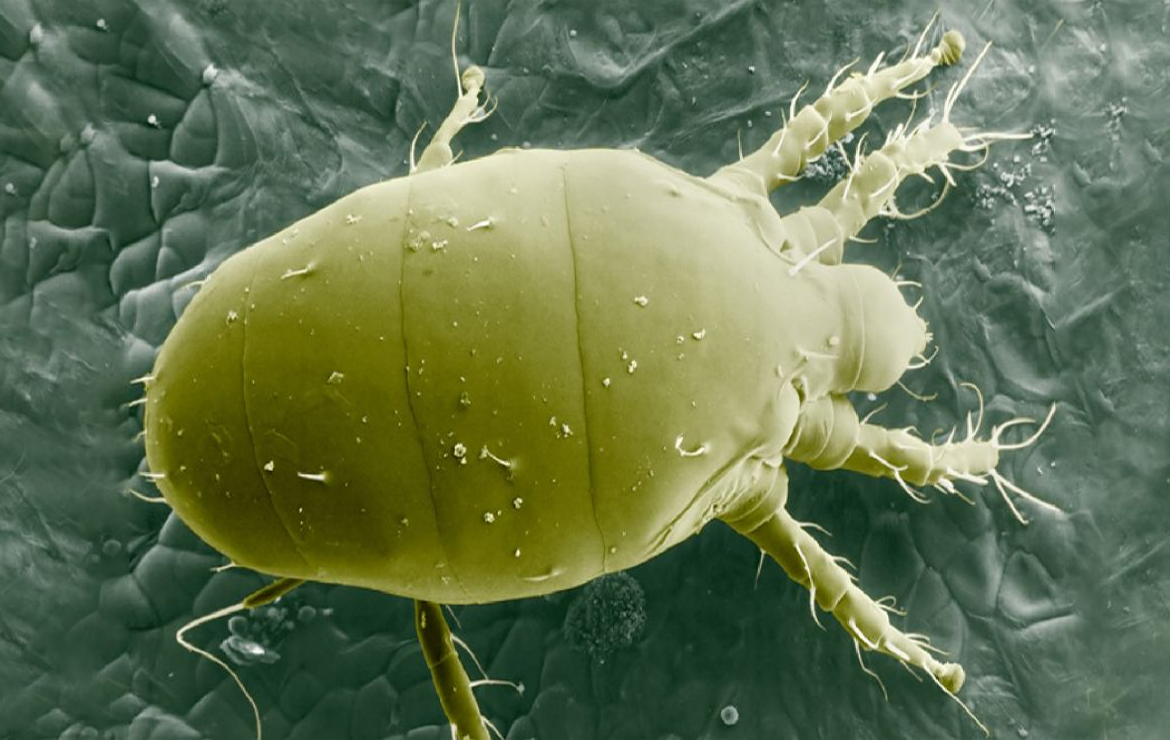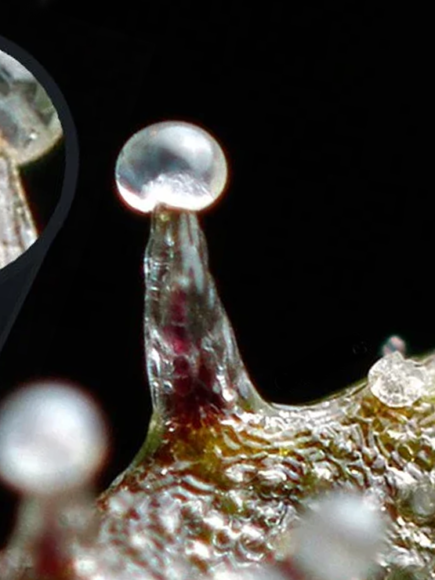Cannabis Pest Remediation – $150

Many pests affect cannabis production facilities and pest remediation skills are necessary to manage in indoor, greenhouse, or outdoor environment. Growers can use various strategies to avoid and control pests, including cultural, physical, biological, and chemical tactics. In this course you will learn the major steps to develop your own IPM plan (Integrated Pest Management). Monitoring, prevention techniques and identification will be reviewed, which will enhance the productivity of your plants.
Introduction Pest Remediation
3 Modules, 48 minutes approximate Lesson time
Introduction
- Overview
- As a result of taking this module, students will be able to review the course objectives, the course navigation, the graded assessments, how to view the scores, and how to successfully complete the course.
- Course Overview
- As a result of taking this module, students will be able to identify pests and pathogens that are common to the cannabis plant, review the tools for prevention, and understand the meaning and process of integrated pest management. Understanding pest remediation in the cannabis industry is essential for safeguarding crop health, maintaining product quality, ensuring compliance with regulations, and meeting consumer demands for safe and sustainable cannabis products. It’s a critical aspect of responsible and successful cannabis cultivation.
- Lesson: Instructor Introduction
- As a result of taking this module, you will be introduced to the Instructor who will list their specific qualifications for teaching this course.
Module 1: Pests and Pathogens Common to Cannabis
Module 1: Pests and Pathogens Common to Cannabis
Prerequisites: Introduction
- Complete All Items
- Pre-Lesson
- Key Terms: Common Pests and Pathogens
- The key terms will be instrumental in developing a good understanding of the course’s main topics. As a result of taking this module, you will begin to develop and relate these key terms to the topics found within the course, which will help establish a relationship between the two items and a deeper understanding of those main topics.
- Interactive Flash Cards: Plants, Pest, and Pathogens
- As a result of taking this module, students can practice memorizing the most important key terms associated with this module
- Matching Game: Pair those Pests and Pathogens!
- As a result of taking this module, student’s will race against the clock to match terms and definitions. studentss can choose several games to review all the material
- Lesson
- Lesson: Pests and Pathogens
- Through the completion of this module, students will be able to identify and define common pathogens of the cannabis plant and identify and define the most common pests of the cannabis plant. It is important to consider the importance of pests and pathogens in cannabis crops to reduce harvest yields and crop health.
- Post-Lesson
- Bonus Material: Spider Mites
- In this module, students will gain a greater understanding of this nearly microscopic pest (spider mite) and gain the skills they need to conduct an analysis of current plants, whether cannabis or houseplants. Identifying pests allows growers to detect infestations at their onset, enabling swift and targeted interventions to prevent the pests from causing significant damage.
- Key Terms Practice Quiz: Pest and Pathogen Practice
- This is a non-graded, practice activity to test students knowledge of the terminology that relates to the various topics and the themes found in this module. As a result of taking this module, It is encouraged to set a personal goal to earn at least a score of 70% for preparation of the Knowledge Check.
- Knowledge Check: Pest and Pathogen Remediation
- These quizzes are designed to elicit memories and check studentsr understanding from the videos, summaries, and/or related resources found within the module. As a result of taking this knowledge quiz, students will encounter 9 multiple choice questions. Students will need to earn a 70% or higher to successfully pass and move on in the course.
- Conclusion: Pests and Pathogens Common to Cannabis
- This module prompts students to click the “Mark as Done” button to move on to the next Module.
Module 2: Weapons of War
Module 2: Weapons of War
Prerequisites: Module 1: Pests and Pathogens Common to Cannabis
- Complete All Items
- Pre-Lesson
- Key Terms: “Weapons of War” Terms
- The key terms will be instrumental in developing a good understanding of the course’s main topics. As a result of taking this module, students will begin to develop and relate these key terms to the topics found within the course, which will help establish a relationship between the two items and a deeper understanding of those main topics
- Interactive Flash Cards: Weapons of War
- As a result of taking this module, students can practice memorizing the most important key terms associated with this module.
- Matching Game: Ready, Set, War!
- As a result of taking this module students will race against the clock to match terms and definitions. students can choose several games to review all the material.
- Lesson
- Lesson: Weapons of War
- The purpose of this module is to enable students to identify the tools and methods commonly used to enable growers to choose the most appropriate and least harmful pest management methods, through promoting sustainable and eco-friendly practices and reducing reliance on chemical pesticides in the cannabis industry.
- Post-Lesson
- Bonus Lesson: Insect Identification: Friend or Foe?
- As a result of taking this module students will review excellent, non-chemical weapons of war that can be employed to fight off unwanted insects. The intention is to educate growers and technicians to identify the symptoms of an infestation as well as the level of infestation. This information helps prevent crop losses and maintains the quality and quantity of the cannabis harvest, ensuring a successful cultivation cycle.
- Key Terms Practice Quiz: Remediations Weapons
- As a result of taking this module, students will begin to develop and relate these key terms to the topics found within the course, which will help establish a relationship between the two items and a deeper understanding of those main topics. This is a non-graded, practice activity to test students’ knowledge of the terminology that relates to the various topics and the themes found in this module. It is encouraged to set a goal to earn at least a score of 70% and strive for a perfect score, prior to taking the knowledge check.
- Knowledge Check: Weapons of War
- These quizzes are designed to elicit memories and check students’ understanding of the videos, summaries, and/or related resources found within the module. This multiple-choice quiz contains 10 questions and is untimed. As a result of taking this quiz, the student will need to earn 70% or higher (7.0 questions) to successfully pass and move on in the course.
- Conclusion: Weapons of War
- This module prompts students to click the “Mark as Done” button to move on to the next Module.
Module 3: Integrated Pest Management (IPM)
Module 3: Integrated Pest Management (IPM)
Prerequisites: Module 2: Weapons of War
- Pre-Lesson
- Key Terms: IPM
- The key terms will be instrumental in developing a good understanding of the course’s main topics. As a result of taking this module, students will begin to develop and relate these key terms to the topics found within the course, which will help establish a relationship between the two items and a deeper understanding of those main topics.
- Interactive Flash Cards: Integrated Pest Management
- As a result of taking this module, students can practice memorizing the most important key terms associated with this module.
- Matching Game: IPM Match
- As a result of taking this module students will race against the clock to match terms and definitions. students can choose several games to review all the material
- Lesson
- Lesson: Integrated Pest Management
- As a result of taking this module, IPM, or integrated pest management, will become the topic of discussion. Integrating solid routines into IMP strategy will be one of the most effective methods. Pest remediation methods that are sustainable and environmentally friendly are becoming increasingly important in the cannabis industry. Managing pests through effective remediation strategies can reduce the need for costly pesticides and chemical treatments. This not only saves money but also aligns with consumer demands for cleaner, more natural cannabis products.
- Post-Lesson
- Bonus Material: Natural Pest Control
- The environmental impact of cultivation can be minimized by understanding eco-friendly approaches. Proactive techniques, organic methods of pest deterrence, and the use and goal of predatory insects will be discussed as a result of taking this module.
- Key Terms Practice Quiz: IPM Practice
- This is a non-graded, practice activity to test students knowledge of the terminology that relates to the various topics and the themes found in this module. As a result of taking this module, It is encouraged to set a personal goal to earn at least a score of 70% for preparation of the Knowledge Check.
- Knowledge Check: IPMs
- These quizzes are designed to elicit memories and check studentsr understanding from the videos, summaries, and/or related resources found within the module. As a result of taking this knowledge quiz, students will encounter 5 multiple-choice questions. Students will need to earn 70% or higher (4.0 questions) to pass and move on in the course successfully.
CONCLUSION
CONCLUSION
- Complete All Items
-
- This module prompts students to click the “Mark as Done” button to move on to the next Module.
- Survey: End of Course
- This is an ungraded survey. As a result of taking this survey, the student will help us better understand their personal experience taking this course. The students’ feedback will be reviewed by Cannabis Hub members and be used during the next iterative process in updating the course.
- Mark as Done: Course Completion
- This module prompts students to click the “Mark as Done” button to complete the course. As a result of the student marking the course as complete, the system is prompted to generate a Certificate of Completion, which can be downloaded and printed.
Overview
- 100 Students Enrolled
- Language: English
- Duration: 1 hour
- Lectures: 32
- Certificate of Completion
- Course Requisites: Pay for the course, take the course, and pass the assessments with a 70% or higher grade requirement
-
Introduction
-
Module 1
-
Module 2
-
Module 3


